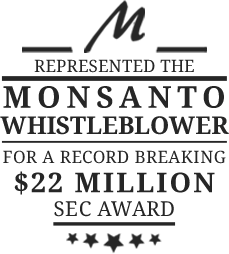ETF Whistleblower Lawyer
Exchange-traded funds are not easy to understand, and this leaves many investors at a disadvantage. Help the SEC put a stop to misconduct by working with an ETF whistleblower attorney.
Many investors believe that an exchange-traded fund (ETF) is similar to a mutual fund. The truth is that there are significant differences between the two, and failing to understand the nuances and intricacies of an ETF can lead to substantial financial losses—even for experienced investors.
Unfortunately, investment advisors often fail to understand ETFs or fail to adequately explain the risks involved to their clients. This can sometimes rise to the level of misconduct, which means that the Securities and Exchange Commission (SEC) might even sanction the financial institution responsible.
Financial fraud and misconduct are everywhere, and if you’ve encountered misconduct involving an ETF, the SEC might reward you for it. Work with an ETF whistleblower lawyer from Meissner Associates to find out if your information might qualify.
What Is an Exchange-Traded Fund?
The fact that exchange-traded funds are complicated and not easy to understand is what puts many investors at risk in the first place. ETFs are essentially investment companies whose shares represent a stake in how the company’s underlying portfolio of assets performs. This performance tracks a specified benchmark or index and resets daily (i.e., the ETF’s performance goal changes on a day-to-day basis).
ETFs can be broken down into three main categories:
- Leveraged ETF – The goal of a leveraged ETF is to perform at a multiple of its tracked benchmark or index.
- Inverse ETF – The goal of an inverse ETF is to perform at the opposite of its tracked benchmark or index.
- Leveraged Inverse ETF – The goal of a leveraged inverse ETF if to perform at a multiple of the opposite of its tracked benchmark or index.
ETFs and Financial Fraud
Because the goals of ETFs reset every single day, investors need to monitor them daily to ensure that an ETF they’ve invested in remains within their financial goals and risk preferences. Because of this, maintaining a long-term investment in an ETF is nothing like a long-term investment in a mutual fund.
Investment advisors who either don’t understand ETFs or don’t fully inform their clients as to the nature of ETFs are putting their clients at risk for huge financial losses. An investor who buys into an ETF expecting it to perform like a mutual fund is being set up for failure.
By reporting this type of misconduct to the SEC through an exchange-traded fund whistleblower attorney from our firm, you can protect these unwitting investors and get rewarded in the process.
Become an Exchange-Traded Fund Whistleblower
Meissner Associates has been working with and protecting whistleblowers from a multitude of different industries since 2001. Our founder helped write the SEC rules regarding whistleblowers, and we’ll put all of this knowledge and experience to use on your behalf when you need to blow the whistle on ETF-related fraud or misconduct.
Sign up for a free, confidential tip evaluation from an experienced ETF whistleblower lawyer today. Arrange yours by completing the form below or by calling our law office directly at 1-866-764-3100.









